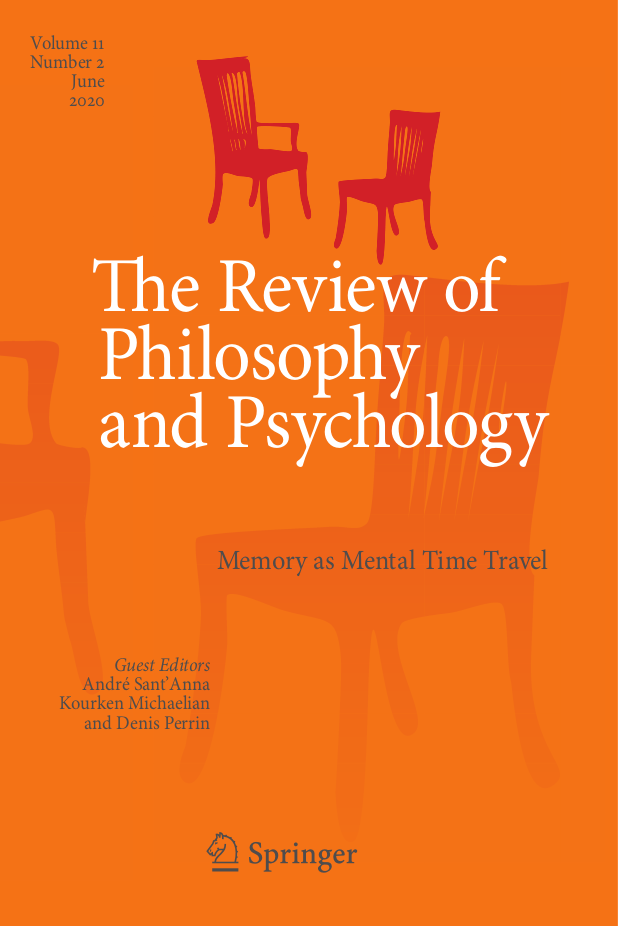Philosophy of memory essay prize
2026 competition
 The call for submissions for the 2026 competition will be circulated in fall 2025.
The call for submissions for the 2026 competition will be circulated in fall 2025.
2024 competition
The Centre for Philosophy of Memory at the Université Grenoble Alpes is pleased to announce the winner of the fourth philosophy of memory essay prize.
The winning article is "On consistently assessing alleged mnemonic systems (Or, why isn't immune memory "really" memory?)", by David Colaço, a postdoc at LMU Munich. Dr. Colaço's article will be published by the Review of Philosophy and Psychology. He will also be given a budget of up to 2000 EUR to cover travel and accommodation for a research visit to the Centre for Philosophy of Memory.
The winner was selected on the basis of independent blind evaluations of all submissions by a panel of three evaluators.
2022 competition
The Centre for Philosophy of Memory at the Université Grenoble Alpes is pleased to announce the winner of the third philosophy of memory essay prize.
The winning article is "LTP revisited: Reconsidering the explanatory power of synaptic efficacy", by Jonathan Najenson, a postdoc at Technion - Israel Institue of Technology. Dr. Najenson's article will be published by the Review of Philosophy and Psychology. He will also be given a budget of up to 3000 EUR to cover travel and accommodation for a research visit to the Centre for Philosophy of Memory.
The winner was selected on the basis of independent blind evaluations of all submissions by a panel of three evaluators.
2021 competition
The Centre for Philosophy of Memory at the Université Grenoble Alpes is pleased to announce the winner of the second philosophy of memory essay prize.
The winning article is "Memory as skill", by Seth Goldwasser, a PhD student at the University of Pittsburgh. Mr. Goldwasser's article will be published by the Review of Philosophy and Psychology. He will also be given a budget of up to 3000 EUR to cover travel and accommodation for a research visit to the Centre for Philosophy of Memory.
We received a large number of excellent submissions, and the evaluators also selected two runners-up: "Memory as sensory modality, perception as experience of the past", by Michael Barkasi, an instructor at York University, and "Memory disjunctivism: A causal theory", by Alex Moran, a a Leverhulme Early Career Fellow in the Faculty of Philosophy and a Research Associate of University College at the University of Oxford. Both of these articles are invited for submission to the Review of Philosophy and Psychology.
The winner and the runners-up were selected on the basis of independent blind evaluations of all submissions by a panel of three evaluators.
2020 competition
The Centre for Philosophy of Memory at the Université Grenoble Alpes is pleased to announce the winner of the first philosophy of memory essay prize.
The winning article is "Remembering the past and imagining the actual", by Daniel Munro, a PhD student at the University of Toronto. Mr. Munro's article will be published by the Review of Philosophy and Psychology. He will also be given a budget of up to 3000 EUR to cover travel and accommodation for a research visit to the Centre for Philosophy of Memory.
We received a large number of excellent submissions, and the evaluators also selected two runners-up: "Memory as triage: Facing up to the hard question of memory", by Nikola Andonovski, a PhD student at Johns Hopkins University, and "Working memory is not a natural kind and cannot explain central cognition", by Javier Gomez-Lavin, a postdoc at the University of Pennsylvania. Both of these articles are invited for submission to the Review of Philosophy and Psychology.
The winner and the runners-up were selected on the basis of independent blind evaluations of all submissions by a panel of three evaluators.